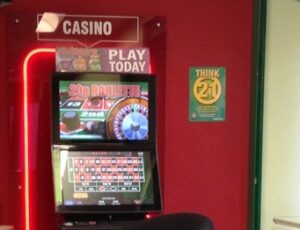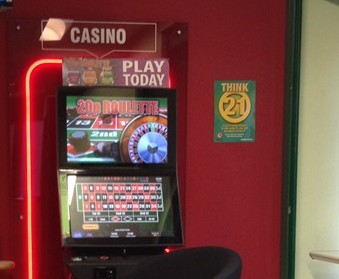
Nearly £2m was lost to gambling machines in one Liverpool city centre street last year, according to new figures released by a national campaigning group.
Gambling machines in 13 betting shops in or near Williamson Square accounted for the heavy losses. The figures were revealed by Campaign for Fairer Gambling: Stop the FOBTs.
Fixed Odds Betting Terminals (FOBTs) are believed to be the most addictive form of gambling and account for more than half of UK betting shops’ takings.
Matt Zarb-Cousin, from Campaign for Fairer Gambling, told JMU Journalism: “We estimate that in Liverpool, £22m was lost on FOBTs in 2015. They’re addictive because they allow the user to bet every 20 seconds on casino games such as roulette. It’s not surprising given the number of machines in Liverpool City Centre that the losses are so high.”
According to the group, only one per cent of the UK population uses FOBTs, yet they account for roughly £1.6bn of profits for the UK betting industry each year. Mr Zarb-Cousin added: “Users can also stake from £1 up to £100, which facilitates harm as users can stake beyond their means if they are chasing losses or become desensitised to betting at stakes they can afford.”
The statistics were released as part of a nationwide study by the campaign group, which placed the profits from FOBTs around Williamson Square amongst the top three in the country.
The shocking figures have since provoked calls for the gambling machines to be banned altogether, however, Mr Zarb-Cousin explained that this is not a simple process. He said: “Councils are forced to ‘aim to permit’ new betting shops. So they are powerless to stop bookmakers opening new shops to facilitate FOBTs.”
The campaign group believe that one solution to this growing problem may be to reduce the amount that users are allowed to bet on the machines.
He said: “Reducing the maximum stake from £100 a spin to £2 would remove the addictive roulette and casino content on FOBTs, which would make them less harmful to users.”

